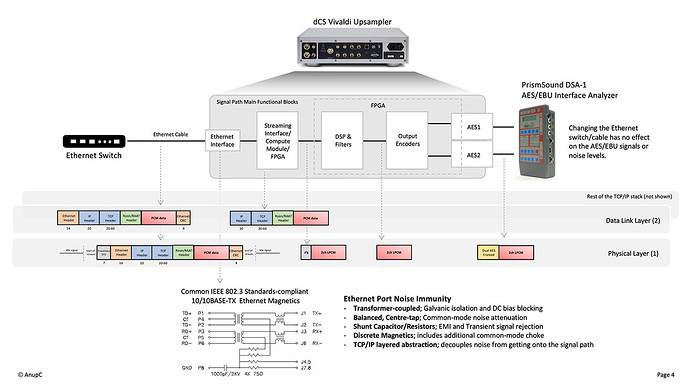Though by the scientific method many wines would taste the same even though at least some oenophiles can tell the difference in the same way some audiophiles with some systems can hear the difference in cables others with other systems cannot.
(There is also lively debate in the wine community whether you actually can tell a difference as well.)
The “trouble” if you will with the scientific method is the hypothesis has to have an unbiased method of testing it and it can give false positives. By the scientific method all expensive cables sound great UNTIL you find a clunker.
We know that skilled sensing can often detect things in a way science doesn’t yet understand. There is ample evidence that dogs’ olfactory systems can pick up on cancer in their owners in some cases, but doctors are still at a loss to explain why and we are left with various hypotheses that medical science has been as of yet unable to test.
There is much about the brain/ear interface we can’t explain, one of the biggies how sound, audible and infrasonic, affects our bodies’ sense of space and where a sound comes from, less “where’s Sinatra on this recording” and more “where did that tree snap behind me in the woods come from?”
Anupc gave a great block diagram of how Ethernet data goes from the port on a dCS unit to a DAC, but as I have posited that is data based, like the claims Ethernet switches cannot affect sound, but does not address whether say noise on the ground at the Ethernet jack could conceivably affect the ground in the DAC and whether that could conceivably have an audible effect.
If you go back a few pages and watch the video from AudioQuest’s Garth Powell on power, he shows how what EEs consider to all be “ground” can very audibly affect playback.
So no, there is no coming to a conclusion on the subject easily in this thread, all I know is I hear it. It is not price-based, it is not review-based, and it’s not because my dealer is a nice guy and I want to throw money his way or not.
Perhaps I am being fooled - though if sighted listening is bad, that doesn’t explain why I have borrowed and returned far more demo equipment that was Stereophile Class A than I have purchased because it didn’t make an improvement in MY system or didn’t improve the sound for me.
All I know is that for me, I don’t need to know why something changes the sound, but if it does repeatedly and the change is positive, it goes on my list of positive upgrades and may even become a purchase.
Honestly I don’t stream enough to upgrade my cable, but that doesn’t mean I haven’t heard it and noticed it.
As I stated in my original post, I don’t care if others do or don’t hear it, but it’s not very scientific to say that I absolutely CANNOT.
To bring this back to the original topic, the scientific method would dictate there is research to be done on why those that can repeatedly hear a difference in particular systems do.
It’s not even a matter of double-blind testing here, it’s more a matter of giving someone a mix of cables, asking them which they like best and seeing the results. If it turns out Belden 2413 sounds worse than AudioQuest Carbon, why is that? What happens if you put $23 Telegartner RJ45 connectors on the Belden? What happens if you put a $7 for ten Klein Tools Cat 6a connector from Home Depot on bare AudioQuest Carbon Ethernet cable?
I’m curious but I’m not going to do the experiment; perhaps someone else who cares will.


 )
)
 )
)